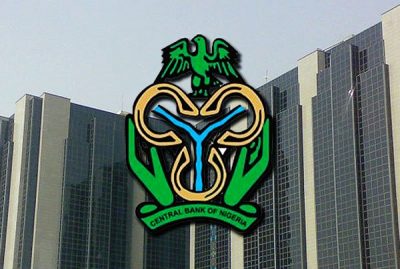The finance sector needs regulatory buffers to strengthen banks’ capacity to withstand shocks, Central Bank of Nigeria (CBN) Deputy Governor Edward Lamtek Adamu, has said.
In his personal statement contained in the CBN Communique of the last Monetary Policy Committee (MPC) meeting released yesterday, the bank chief said the apex bank also needed to build buffers on both fiscal and monetary sides in preparation for a possible downturn.
He explained that from a financial stability standpoint, inflation threats or risks to the naira exchange rate stability are to be mitigated upfront in order to sustain and deepen the resilience of the industry.
“In my view, the expected surge in liquidity and likely retrenchment in inflows on account of some external developments appear to be the most potent threats to domestic economic and financial stability in the short-to medium-term. In addressing these risks, policy coordination is key. While public spending is needed to re-invigorate economic growth, care must be taken to ensure that its essence is not defeated by unintended consequences. Proper coordination of monetary and fiscal policies reduces uncertainty, thereby allowing for optimal deployment of instruments,” he noted.
He noted that “although current global economic conditions appear to portend a favourable short-term outlook for oil prices, we have learned from experience that upswings in crude prices unwind, most times, sooner than forecasts suggest. There is no doubt, the recent rally in prices has had a positive impact on external reserves accretion and boosted the economy’s resilience and investor confidence,” Adamu said.
He also stated that the nature of portfolio investment means they are susceptible to sudden reversals, hence the reality needs to be factored into policy considerations and actions today.
He said the naira exchange rate continues to be an important influence on consumer prices and output recovery.
“Stability in the naira exchange rate has been sustained through appropriate policies and reforms of the exchange rate market aimed at improving the supply of foreign exchange and reduction of speculative and frivolous demands. Consequently, Nigeria’s stock of external reserves continues to grow on account of reduced imports, increased petrodollar inflows owing to more favorable oil prices and uninterrupted crude production, and increased autonomous inflows through the Investors’ and Exporters’ foreign exchange (I&E) window,” he said.
He explained that though measured, there have been some improvements in the banking system, deteriorations in financial soundness indicators have been halted, and in some cases reversed.
“For example, industry return on asset (ROA) and return on earnings (ROE) rose quite significantly to 21.57 and 2.14 per cent, respectively, in April, from 11.78 and 1.28 in February 2018. Likewise, the non-performing loans (NPLs) ratio moderated slightly in April. These positive developments are broadly connected to the improvement in the macroeconomic conditions including stable exchange rate and declining inflation,” he noted.
“Interestingly, banking system stability is required for proper financial intermediation (including credit flow to the real sector) which is needed to support recovery in output. The feedback causation between the banking system and the real economy has to be carefully managed always and especially so during this (recovery) phase of the economy’s business cycle,” he noted.
Adamu said the economic outlook appears stronger, on the assumption that inflation continues to trend downwards, the exchange rate of the naira remains stable and supply of foreign exchange for needed imports remain unconstrained. “We equally cannot discount the role of the CBN’s interventions in the growth poles as well as government’s investments in infrastructure. Headline inflation continued to decelerate in April 2018,” he said.
“Year-on-year, the headline inflation index rose by 12.48 per cent compared to 13.34 per cent in March. Food and core indices similarly rose by 14.80 and 10.92 per cent, respectively in April 2018, compared with 16.08 and 11.18 per cent, respectively in March. However, on month-on-month basis, both food and core inflation rose in April. In fact core inflation rose consistently from January to April.


